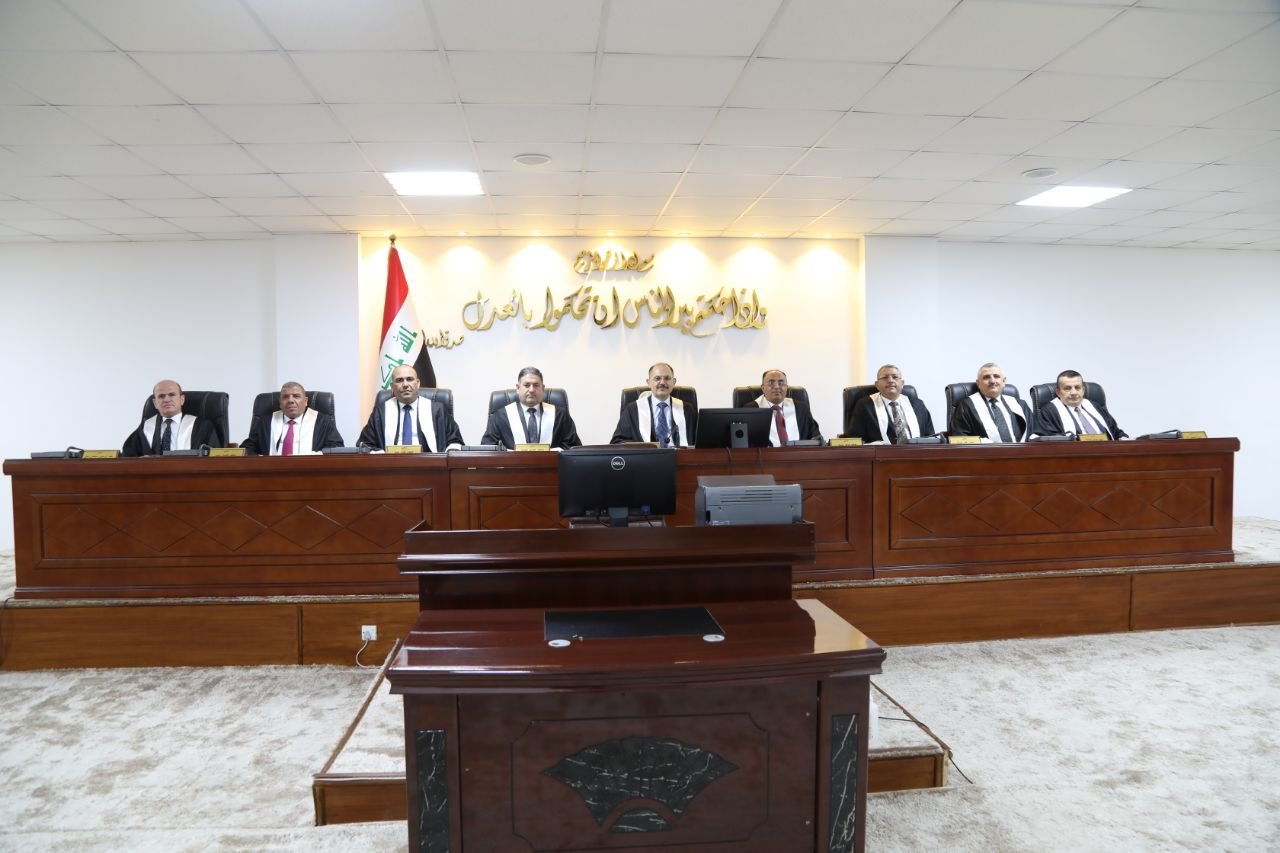Power Struggle Paralyzes Iraq’s Federal Court, Threatening November Elections

The Iraqi Federal Court’s escalating crisis, amid a deepening power struggle within the judicial authorities, now threatens the parliamentary elections scheduled for November. The reason is simple but critical: the Federal Court holds the exclusive constitutional authority to ratify the final results of national parliamentary elections.
Context: On June 19, six of the nine main judges and three of the four reserve judges of the Federal Court submitted their resignations in protest against the court’s chief justice, Jassim al-Umayri. The judges publicly cited a land dispute between Iraq and Kuwait over the Khor Abdullah waterway in Basra as the trigger for their mass resignation.
Analysis: As the judicial crisis continues, more details are emerging about the real motives behind the recent mass resignation. It is increasingly clear that the growing rivalry and power struggle between Faiq Zaidan, president of the Judicial Council, and Jassim al-Umayri, chief justice of the federal court, is a key driver of the mass resignations. According to several reports, Zaidan promised to reappoint the resigned judges once al-Umayri was out of the way. These resignations appear to have pressured al-Umayri into requesting early retirement, effectively forcing him to vacate his position.
What further strengthens this view is that the judges submitted their resignations to Zaidan’s Judicial Council, not to their own chief justice as protocol would require. This is a telling detail, especially since one of the key issues in the Zaidan–al-Umayri dispute was Zaidan’s attempt to bring the Federal Court under the Council’s authority, while al-Umayri firmly maintained that the Federal Court is an independent institution whose rulings are binding.
There is also a political layer to the resignations. Of the nine main court members, only three did not resign: al-Umayri himself, one Shia judge, and one Kurdish judge affiliated with the KDP. The six who resigned included one Kurd from the PUK, both Sunni members, and three Shia judges. This distribution suggests broader political alignment behind the move.
One controversial issue reportedly contributing to the fallout is the matter of KRG public salaries. Some of the resigned judges allege that al-Umayri not only advocated unilaterally relinquishing Khor Abdullah to Kuwait, but also attempted to politicize the issue by linking it to KRG salaries—suggesting the court handle both as part of a broader political bargain, much like the “package deal” model used in parliament to pass sensitive laws that benefit Shia, Sunni, and Kurdish factions.
Opposing voices argue that the resignations were engineered by Zaidan to deliberately stall a ruling on KRG salary payments. According to this view—championed by anti-Iran Arab and pro-KDP Kurdish circles—Zaidan sought to prolong the salary freeze in hopes that prolonged delays might spark mass protests and trigger the collapse of the KRG.
However, other reports suggest the KRG salary issue may not require a full court session. Before resigning, the judges reportedly submitted letters supporting the disbursal of KRG salary funds, potentially allowing the chief justice to issue a decision unilaterally.
Beyond these immediate tensions, the Federal Court has long faced mounting political pressure, often manifesting in open confrontations—especially under al-Umayri, who hails from conflict-ridden Diyala Province (his son was even nominated by Hadi al-Amiri for Diyala governor, though he was ultimately rejected).
Roles and Responsibilities of Iraq’s Highest Judicial Authorities
Judicial Appointments
Court Administration
Public Prosecution Oversight
Constitutional Interpretation
Government Dispute Resolution
Election Result Certification
Legally, the Federal Court’s duties are clearly defined by Iraq’s constitution. Yet, in practice, political actors have increasingly offloaded contentious or unpopular decisions onto the court in order to avoid accountability. From electoral disputes to KRG salaries, even issues within the domain of the executive branch are routinely passed to the judiciary.
This trend has left the court overwhelmed. Its docket clogged with politically charged cases, its members disillusioned, and its institutional cohesion fraying—until the crisis erupted in full view.
Some dimensions of the court’s collapse reflect broader instability within Iraq’s political system and the intervention of external actors. But one thing is certain: the paralysis of the Federal Court poses a serious threat to Iraq’s legal and political stability—especially with national elections just months away.









